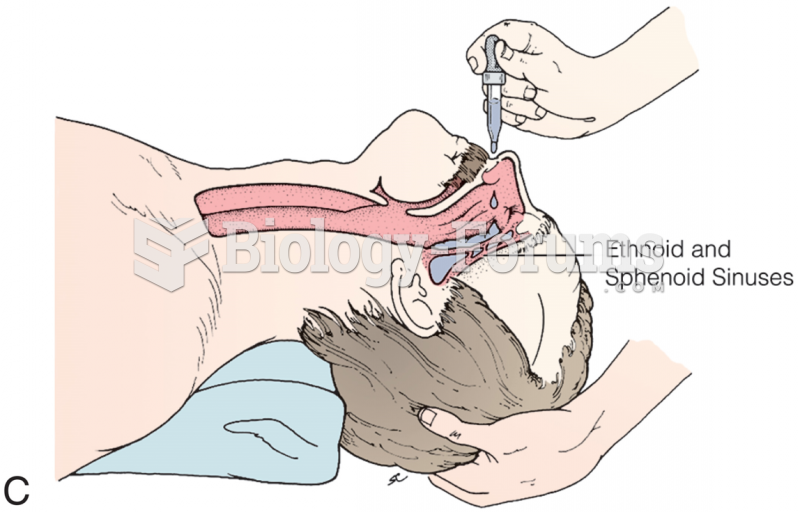|
|
|
According to the American College of Allergy, Asthma & Immunology, more than 50 million Americans have some kind of food allergy. Food allergies affect between 4 and 6% of children, and 4% of adults, according to the CDC. The most common food allergies include shellfish, peanuts, walnuts, fish, eggs, milk, and soy.
According to the National Institute of Environmental Health Sciences, lung disease is the third leading killer in the United States, responsible for one in seven deaths. It is the leading cause of death among infants under the age of one year.
The Romans did not use numerals to indicate fractions but instead used words to indicate parts of a whole.
This year, an estimated 1.4 million Americans will have a new or recurrent heart attack.
Human stomach acid is strong enough to dissolve small pieces of metal such as razor blades or staples.






